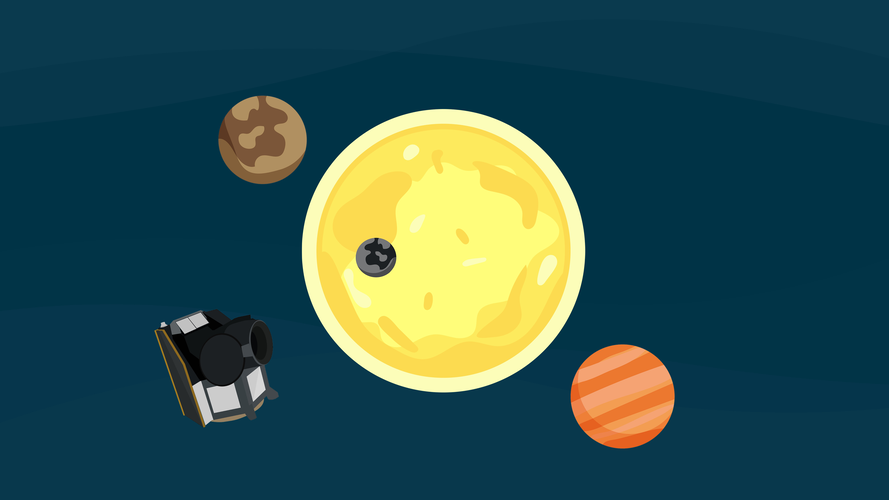SiriusXM commissions Maxar to build two satellites
Thursday, 01 December 2022 11:35 Maxar Technologies and SiriusXM (NASDAQ: SIRI) have announced a new agreement commissioning Maxar to build and deliver two new geostationary communications satellites for SiriusXM. The SXM-11 and -12 satellite orders increase the total number of spacecraft in development for SiriusXM by Maxar to four, following the 2021 agreement for the construction of SXM-9 and -10.
"This investment reaf
Maxar Technologies and SiriusXM (NASDAQ: SIRI) have announced a new agreement commissioning Maxar to build and deliver two new geostationary communications satellites for SiriusXM. The SXM-11 and -12 satellite orders increase the total number of spacecraft in development for SiriusXM by Maxar to four, following the 2021 agreement for the construction of SXM-9 and -10.
"This investment reaf Renewed support for ESA innovation at Paris Ministerial
Thursday, 01 December 2022 09:00Member State delegations pledged a record-breaking €16.9 billion budget for ESA at last week's Council at Ministerial Level in Paris, including renewed support for dedicated R&D programmes employed by ESA’s Directorate of Technology, Engineering and Quality to invent the future in space.
Pillars of Creation (NIRCam and MIRI composite image)
Thursday, 01 December 2022 07:57 Image:
Pillars of Creation (NIRCam and MIRI composite image)
Image:
Pillars of Creation (NIRCam and MIRI composite image) SpaceX again postpones Japanese moon lander launch
Thursday, 01 December 2022 07:28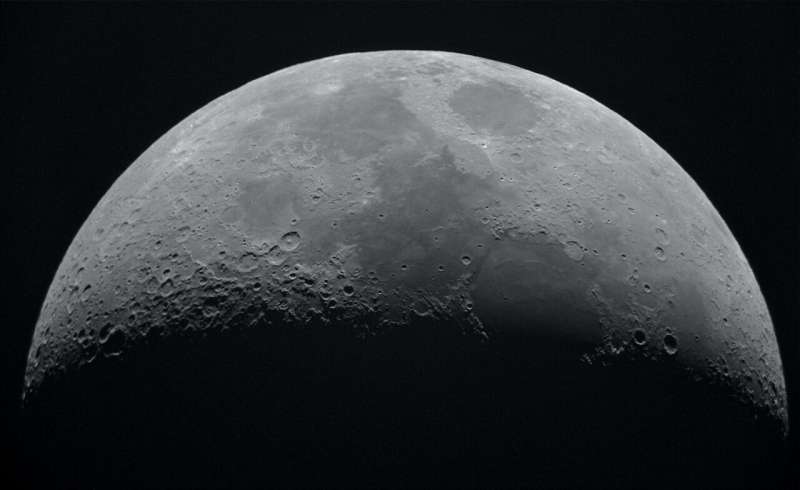
SpaceX on Wednesday postponed the launch of the world's first private lander to the Moon, a mission undertaken by Japanese firm ispace.
A Falcon 9 rocket was scheduled to blast off at 3:37 am (0837 GMT) on Thursday from Cape Canaveral in the US state of Florida, but SpaceX said further checks on the vehicle had led to a delay.
"After further inspections of the launch vehicle and data review, we're standing down from tomorrow's launch of @ispace_inc's HAKUTO-R Mission 1; a new target launch date will be shared once confirmed," the firm tweeted.
Until now, only the United States, Russia and China have managed to put a robot on the lunar surface.
The mission by ispace is the first of a program called Hakuto-R.
The lander would touch down around April 2023 on the visible side of the Moon, in the Atlas crater, according to a company statement.
The delay came after the launch had already been postponed by a day due to the need for additional pre-flight checks, SpaceX and ispace said on Wednesday.
Measuring just over 2 by 2.5 meters, the lander carries on board a 10-kilogram rover named Rashid, built by the United Arab Emirates.
At NASA, France's Macron and US vow strong space cooperation
Thursday, 01 December 2022 07:00
Paris and Washington pledged Wednesday to reenforce their cooperation in space, particularly on exploration and climate, during a visit by France's Emmanuel Macron to NASA headquarters alongside US Vice President Kamala Harris.
The French president, on a state visit to the United States, highlighted the American lunar program Artemis, whose first uncrewed test mission launched in mid-November with participation of the European Space Agency (ESA).
"We are very keen" to participate, he told Harris, adding with a smile: "It's very important for us, as long as you can propose a French leader to fly to the Moon quite rapidly," he said, in a nod to French astronaut Thomas Pesquet, who joined Macron for the NASA visit.
European Service Module, Orion, Moon, Earth
Thursday, 01 December 2022 06:22 Image:
European Service Module, Orion, Moon, Earth
Image:
European Service Module, Orion, Moon, Earth France joins ASAT testing moratorium
Thursday, 01 December 2022 02:26
The French government said Nov. 29 it will join the United States and several other countries in a pledge not to conduct anti-satellite (ASAT) weapons tests that can leave hazardous debris in orbit.
Wide-Field-of-View missile warning satellite transmits first images
Wednesday, 30 November 2022 20:31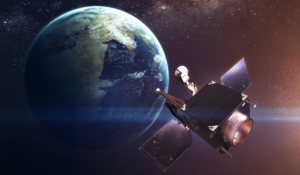
The U.S. Space Force has received initial images from a new missile-warning satellite launched in July.
The post Wide-Field-of-View missile warning satellite transmits first images appeared first on SpaceNews.
Hiber demands Astrocast cash after failed acquisition
Wednesday, 30 November 2022 19:20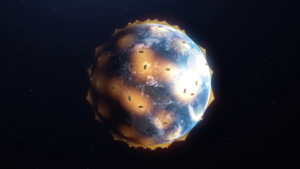
Dutch remote monitoring specialist Hiber is demanding $1.5 million from cash-strapped Astrocast after plans to be sold to the company ran out of time, according to the Swiss small satellite operator.
OroraTech raises funding for additional thermal mapping satellites
Wednesday, 30 November 2022 18:39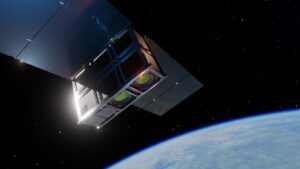
OroraTech, a German company developing a constellation of thermal mapping satellites for tracking wildfires and other applications, has raised an additional 15 million euros ($15.4 million) to support work on future satellites.
The post OroraTech raises funding for additional thermal mapping satellites appeared first on SpaceNews.
Graphene heading to space and to the moon
Wednesday, 30 November 2022 16:18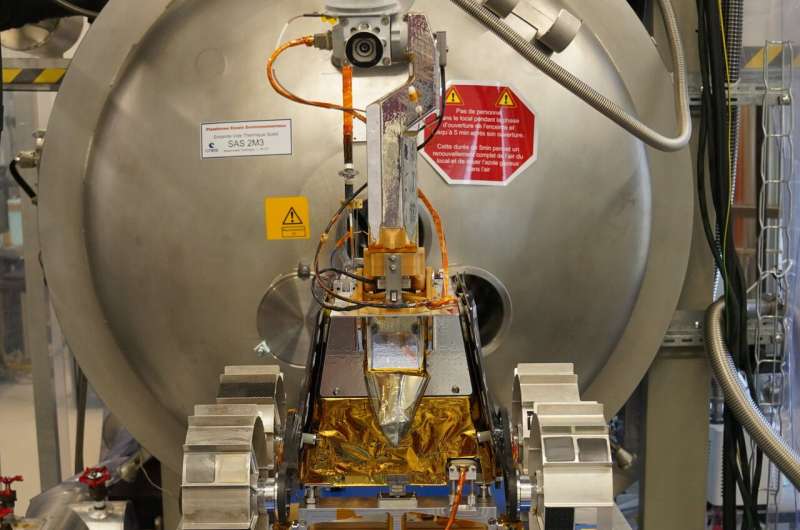
Graphene Flagship Partners University of Cambridge (U.K.) and Université Libre de Bruxelles (ULB, Belgium) paired up with the Mohammed bin Rashid Space Center (MBRSC, United Arab Emirates), and the European Space Agency (ESA) to test graphene on the moon. This joint effort sees the involvement of many international partners, such as Airbus Defense and Space, Khalifa University, Massachusetts Institute of Technology, Technische Universität Dortmund, University of Oslo, and Tohoku University.
The Rashid rover is planned to be launched on December 1, 2022 from Cape Canaveral in Florida and will land on a geologically rich and, as yet, only remotely explored area on the moon's nearside—the side that always faces the Earth. During one lunar day, equivalent to approximately 14 days on Earth, Rashid will move on the lunar surface investigating interesting geological features.
The Rashid rover wheels will be used for repeated exposure of different materials to the lunar surface. As part of this Material Adhesion and abrasion Detection experiment, graphene-based composites on the rover wheels will be used to understand if they can protect spacecraft against the harsh conditions on the moon, and especially against regolith (also known as "lunar dust").
SpaceX postpones mission to put Japanese lander on Moon
Wednesday, 30 November 2022 11:06 SpaceX on Wednesday postponed by one day a mission to launch the first private - and Japanese - lander to the Moon.
A Falcon 9 rocket is now scheduled to blast off at 3:37 am (0837 GMT) Thursday from Cape Canaveral, Florida. SpaceX said on Twitter that the delay was to carry out more pre-flight checks.
Until now, only the United States, Russia and China have managed to put a robot on t
SpaceX on Wednesday postponed by one day a mission to launch the first private - and Japanese - lander to the Moon.
A Falcon 9 rocket is now scheduled to blast off at 3:37 am (0837 GMT) Thursday from Cape Canaveral, Florida. SpaceX said on Twitter that the delay was to carry out more pre-flight checks.
Until now, only the United States, Russia and China have managed to put a robot on t NASA awards contract for 3D-printed construction on moon, Mars
Wednesday, 30 November 2022 11:06Vega C to launch five Copernicus spacecraft
Wednesday, 30 November 2022 10:11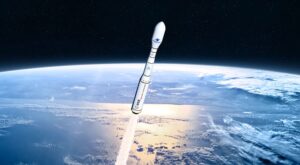
The European Commission awarded a contract to Arianespace Nov. 29 for launches of five Copernicus Earth observation spacecraft on Vega C rockets between 2024 and 2026.
The post Vega C to launch five Copernicus spacecraft appeared first on SpaceNews.


